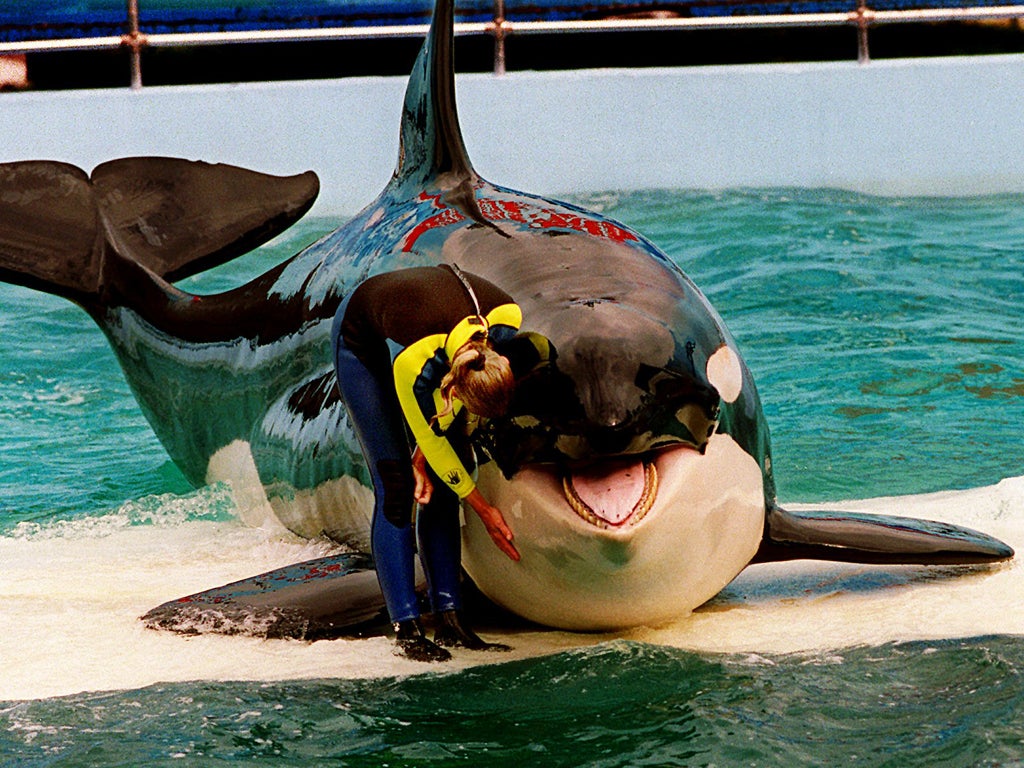Your support helps us to tell the story
From reproductive rights to climate change to Big Tech, The Independent is on the ground when the story is developing. Whether it's investigating the financials of Elon Musk's pro-Trump PAC or producing our latest documentary, 'The A Word', which shines a light on the American women fighting for reproductive rights, we know how important it is to parse out the facts from the messaging.
At such a critical moment in US history, we need reporters on the ground. Your donation allows us to keep sending journalists to speak to both sides of the story.
The Independent is trusted by Americans across the entire political spectrum. And unlike many other quality news outlets, we choose not to lock Americans out of our reporting and analysis with paywalls. We believe quality journalism should be available to everyone, paid for by those who can afford it.
Your support makes all the difference.You've heard of Free Willy; now it could be time for "Liberate Lolita". Forty years after the nation's most famous killer whale was lassoed off the coast of America's Pacific north-west and sold to a Florida theme park, her fans are off to court in an effort to secure her release.
A lawsuit lodged by animal rights activists accuses the US government of illegally discriminating against captive orcas such as Lolita, a resident of the Miami Seaquarium, by failing to give them the same rights as their wild counterparts.
Filed in Seattle last month, the lawsuit points out that the official listing of killer whales as an "endangered species" in 2005 officially makes it illegal, under federal law, to "harass, harm, pursue, shoot, wound, kill, trap, capture, or collect" members of their species.
Lolita is kept in a relatively confined tank, and despite being a member of a highly social species, she is not granted the opportunity to fraternise with other whales. The lawsuit therefore argues that her current treatment amounts to unlawful harassment. "The fact that the federal government has declared [killer whales] to be endangered is a good thing," Karen Munro, a plaintiff in the lawsuit, told the Associated Press. But, she added, "they neglected to include these captives" in their enforcement of the law.
Ms Munro, who lives near Whidbey Island, near Seattle, where Lolita was captured in 1970, filed the lawsuit with People for the Ethical Treatment of Animals and the Animal Legal Defense Fund, two wealthy advocacy organisations. Her claims are currently being examined by lawyers for the National Oceanic and Atmospheric Administration, responsible for the US government's fisheries service. Legal experts are divided on their merits, but believe the outcome of any trial has implications that could affect zoos and aquariums across the US.
"The implications are huge," Patrick Parenteau, a University of Vermont law professor, told The Seattle Times, which is taking a special interest in Lolita's case. "There are all kinds of animals held in captivity that could be covered by the Endangered Species Act."
Lolita has been a cause célèbre in animal rights circles ever since she was shipped to Miami in 1970. Over the years, activists have held annual demonstrations calling for her release, and at one point offered the Seaquarium $1m to return her to the wild. Celebrities, including Johnny Depp, Harrison Ford and 50 Cent, have donated money to her liberation campaign, and in the mid-1990s, when Free Willy was being produced, the Washington State governor, Mike Lowry, made a teary visit to the film-set and publicly called for her release.
Public opinion has for some time been wavering over the confinement of very large mammals such as whales. Last year, Dawn Brancheau, a 40-year-old employee of SeaWorld Orlando, was dragged into the water by Tilikum, a 12,000lb bull orca, and killed. SeaWorld is currently disputing charges filed against it by America's health and safety agency in the wake of that incident.
Despite the ongoing controversy, Seaquarium, for which Lolita is a star attraction, has so far been unwilling to part with her. Because she is believed to be in her mid-forties, the whale is no longer of any use for breeding purposes, and her natural lifespan is expected to give her only another decade of healthy existence.
In a written statement, the theme park claimed that, after so long in captivity, she would in any case be unable to cope with the rigorous demands of a return to the wild. She "has learned to trust humans completely, and this long-standing behavioural trust would be dangerous for her if she were returned to Puget Sound, where commercial boat traffic and human activity are heavy, pollution is a serious issue, and the killer whale population has been listed as an endangered species," it read.

Join our commenting forum
Join thought-provoking conversations, follow other Independent readers and see their replies
Comments